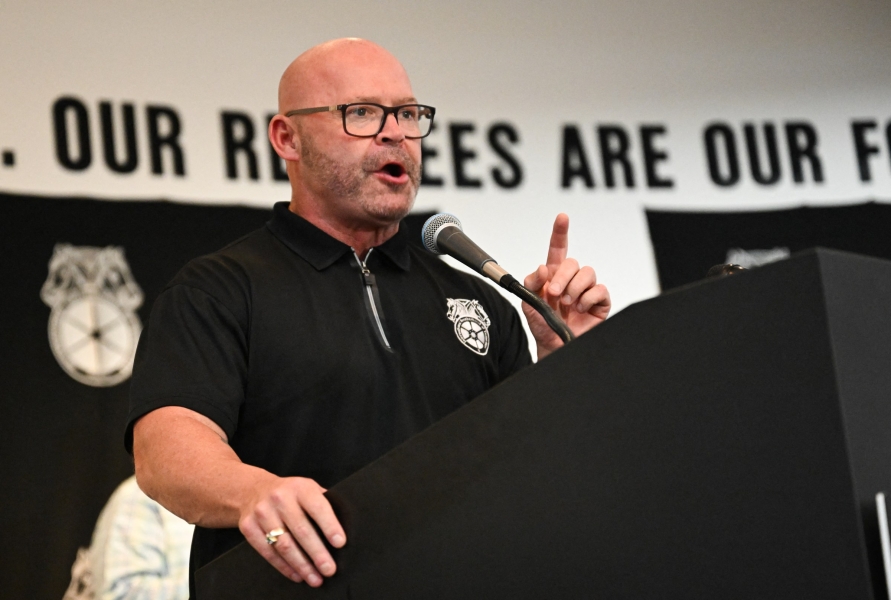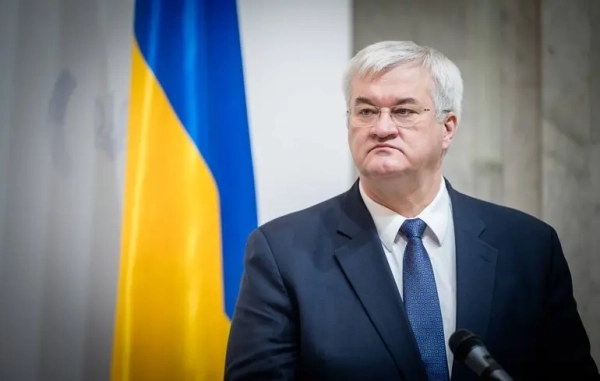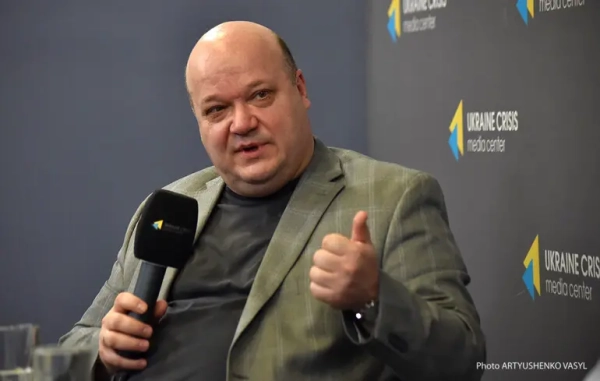
The International Brotherhood of Teamsters, one of the US’s largest and best-known labor unions, has declined to endorse a candidate for president, citing major political divides among its membership, as well as dissatisfaction with each major candidate’s stances on key union priorities.
In a tight presidential race where the vast majority of labor unions have endorsed Vice President Kamala Harris, the Teamsters’ decision not to do so could be seen as a high-profile rebuke, especially since Harris is part of a Democratic administration that has, for the most part, been highly supportive of labor union rights. Whether the decision actively hurts her, however, remains to be seen.
The Teamsters represent more than a million workers from many industries, including UPS drivers and workers in construction, healthcare, and sanitation. Their members are located throughout the United States. But Teamsters have a particularly strong base in the Midwest and in swing states that could be decisive in November.
Ahead of the decision, the Teamsters polled members on their presidential preferences. In a September telephone poll, 58 percent of Teamsters members supported Republican candidate Donald Trump, and 31 percent said they’d like the union to endorse Harris. In straw polls conducted at town halls prior to President Joe Biden’s decision to exit the race in July, 44 percent of members supported Biden, versus 36 percent for Trump.
While the poll results suggest a general preference for Trump, a number of Teamsters local unions and subgroups have vocally come out in support for Harris. The Teamsters National Black Caucus endorsed Harris in August, not waiting for the national organization’s decision. In the wake of Wednesday’s announcement, local unions in battlegrounds like Michigan, Wisconsin, and Pennsylvania — among others — also endorsed Harris.
Now both camps are claiming to have the Teamsters behind them, Trump because of the poll results, and Harris because of the local endorsements.
Will the Teamsters’ political decision carry weight in November?
The lack of endorsement may not ultimately matter much when it comes to how Teamsters will vote. The polls and local endorsements so far have made it clear that most Teamsters have a set preference this election cycle, and it’s not clear that an endorsement from the national union would have done much to change that.
Peverill Squire, a political science professor at the University of Missouri, told Vox that where union endorsement really matters is on the ground, campaigning.
“Union endorsements are valuable because they usually come with access to resources, particularly volunteers to knock on doors and work phone banks,” Squire said. “Leadership may be able to persuade some members to vote the way they would like, but the real value is in campaign assistance.”
Besides the setback of having fewer volunteers, there’s also some possibility that the non-endorsement could sway non-union voters sympathetic to labor issues.
“There’s the broad symbolism” of the lack of endorsement, Vanderbilt University professor of sociology and political economy Larry Isaac told Vox.
Teamsters national president Sean O’Brien said, “We sought commitments from both Trump and Harris not to interfere in critical union campaigns or core Teamsters industries — and to honor our members’ right to strike — but were unable to secure those pledges.” That statement, along with the larger choice not to issue an endorsement, makes an explicit argument that neither candidate would look out for organized labor.
Prior to Wednesday’s announcement, there were indications that the union might not endorse at all, in a break with other major unions — which wasn’t a total shock given that the Teamsters have often been out of step politically with the rest of the US labor union movement, Isaac said. The United Auto Workers, the American Federation of Teachers, the AFL-CIO, and many smaller unions across industries and across the country have endorsed Harris.
Still, the Teamsters’ announcement may be enough to influence some voters. Americans support unions at higher levels than they have in decades — and some data suggests voters were more likely to support candidates they perceived as being pro-union in the 2022 elections.
Through her connection to Biden, Harris does have a good record on labor; Biden stood at the picket line with UAW workers when they were striking last summer, and has generally supported the right to strike and sought to undermine corporate power. But the administration also forced Teamsters members back to work under what union leadership said was a less-than-ideal contract ahead of a railroad strike in 2022.
But Harris’s own policies and values distinct from Biden’s aren’t all that well known, though she has supported the Protect the Right to Organize (PRO) Act, which would strengthen protections around workers’ right to organize and bargain collectively. But Teamsters leadership was reportedly unimpressed with what they heard during a meeting with Harris earlier this week.
Trump, on the other hand, appointed labor antagonists to the National Labor Review Board and approved legislation that restricted workers’ right to organize and strengthened workplaces’ ability to break up a union during his presidency. Rather than focusing on pro-labor policy, Trump has spent the 2024 campaign courting the working class with his populist message. Still, Trump too, apparently did not impress Teamsters in his roundtable meeting with members.
Source: vox.com






